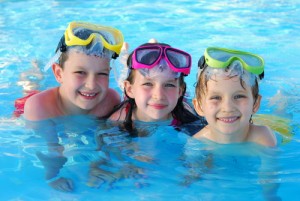Basic safety tips for swimming

Basic safety tips for swimming
The long summer months are upon us with their soaring temperatures and soaking humidities. This is the time when beaches and swimming pools become popular destinations for relaxation.
Taking a trip to the nearby beach for a day of swimming, or spending an afternoon at a community swimming pool to cool down, may lead to a drowning tragedy in your family if you are not aware about water safety. Everyone should be aware of the risk of these incidents as they happen regularly in the world.
Take the necessary precautions to keep you and your family safe. Drownings can happen in a matter of seconds. What makes them even more insidious is that there is usually no noise , splashing or screaming to warn of trouble. Children are particularly susceptible to drowning because they like to play in water, they move quickly and they do not associate water with danger.
A temporary lapse in adult supervision is a common factor in most drowning and near drowning incidents. Parents must be aware that children can drown in as a little as one inch of water.
Safety can be enhanced if swimmers follow these simple rules:
1. Learn how to swim. You would be amazed at how many children go into the water without knowing how to swim.
2. Never swim alone, always swim with a buddy.
3. Never swim or wade in the water after sunset.
4. Swim in supervised areas that have lifeguards on duty.
5. Report any missing children to the lifeguard immediately.
6. Obey the warning signs and notices around your swimming area- they are there for everyone’s safety.
7. Stop swimming at the first sign of bad weather; always pay attention to local weather conditions and forecasts.
8. Always listen to the lifeguard’s advice and heed any warnings. If in doubt ask the lifeguard to explain something that you do not understand.
9. Don’t try to swim against the current if caught in one. Swim gradually out of the current by swimming across it.
10. Do not consider air-filled devices and toys, such as water wings, or even approved flotation devices as substitutes for adult supervision. These devices can suddenly shift position, lose air, or slip out from underneath your child, exposing them to danger.
O W Palitha Ariyarathna, rescuer and deep sea diver
No comments:
Post a Comment